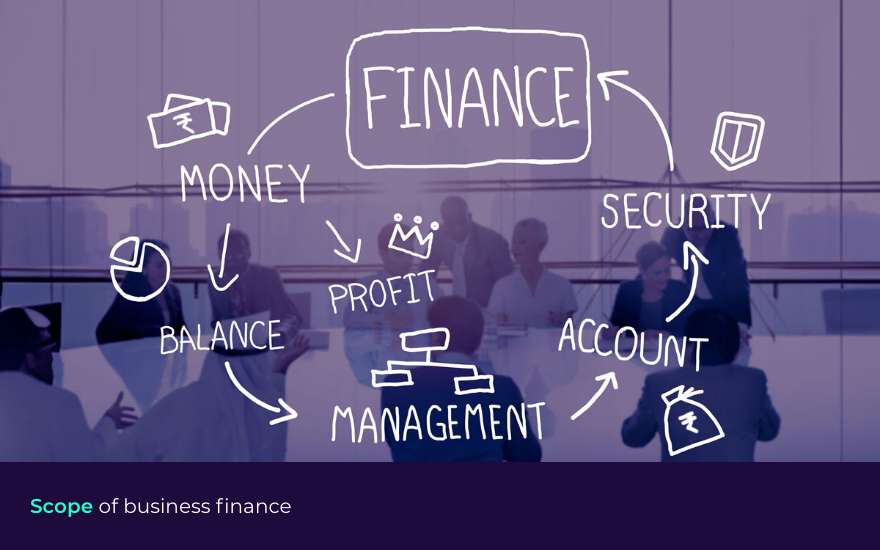FinTech in the News: Technology’s Impact on Financial Reporting
The financial technology (FinTech) revolution has permeated nearly every aspect of the financial services industry, and financial reporting is no exception. Once a largely manual and often cumbersome process, financial reporting is undergoing a significant transformation driven by technological advancements. From automated data collection to sophisticated analytics, FinTech is reshaping how organizations gather, process, analyze, and ultimately present their financial performance. This article delves into the various ways technology is impacting financial reporting, exploring the benefits, challenges, and the future landscape of this critical business function.

The rise of FinTech has been fueled by a confluence of factors, including the increasing availability of computing power, the proliferation of data, and the demand for more efficient and transparent financial processes. Technologies like artificial intelligence (AI), machine learning (ML), blockchain, cloud computing, and big data analytics are no longer futuristic concepts but are actively being deployed in financial reporting functions across organizations of all sizes. This technological infusion is leading to a paradigm shift, moving away from traditional, backward-looking reports to more dynamic, forward-thinking insights.
One of the most significant impacts of FinTech on financial reporting is in the realm of data collection and processing. Traditionally, this involved manual data entry, reconciliation across disparate systems, and time-consuming consolidation processes. FinTech solutions are automating many of these tasks, significantly reducing the potential for human error and freeing up finance professionals to focus on more strategic activities. For instance, robotic process automation (RPA) is being used to automate repetitive tasks like data extraction from invoices, bank statements, and other financial documents. This not only accelerates the reporting cycle but also improves the accuracy and consistency of the data.
Furthermore, cloud-based accounting systems have revolutionized how financial data is stored and accessed. These platforms offer real-time visibility into financial information, allowing stakeholders to gain up-to-the-minute insights into the company’s financial health. The integration capabilities of these systems also streamline the flow of data from various sources, eliminating the need for manual data transfers and reducing the risk of data silos. This interconnectedness fosters a more holistic and accurate view of the organization’s financial performance.
Related articles 01:
1. https://goldnews24h.com/fintech-startups-are-changing-the-way-we-bank
2. https://goldnews24h.com/finance-tech-disruption-or-evolution
3. https://goldnews24h.com/convergence-where-finance-meets-tech
4. https://goldnews24h.com/unlocking-the-future-with-fintech
5. https://goldnews24h.com/are-you-ready-for-the-fintech-future
The application of artificial intelligence (AI) and machine learning (ML) is further enhancing the accuracy and efficiency of financial reporting. AI-powered tools can analyze vast amounts of financial data to identify anomalies, detect potential fraud, and provide predictive insights. For example, ML algorithms can be trained to recognize patterns in financial transactions that might indicate fraudulent activity, alerting finance teams to potential risks before they escalate. Similarly, AI can be used to automate the reconciliation process, identifying discrepancies and suggesting potential resolutions, saving significant time and effort.
Big data analytics is another transformative force in financial reporting. Organizations today generate and have access to unprecedented amounts of data, both financial and non-financial. FinTech tools enable finance teams to harness this data to gain deeper insights into business performance. By analyzing trends, identifying correlations, and forecasting future outcomes, companies can make more informed strategic decisions. For instance, analyzing customer data alongside sales figures can provide a more comprehensive understanding of revenue drivers and customer profitability. This level of granular analysis was simply not feasible with traditional reporting methods.
Beyond efficiency and accuracy, FinTech is also contributing to improved transparency and accessibility in financial reporting. Technologies like blockchain have the potential to create immutable and auditable records of financial transactions. While its widespread adoption in mainstream financial reporting is still in its early stages, blockchain’s inherent transparency and security features could revolutionize how financial information is shared and verified. Imagine a future where financial statements are recorded on a distributed ledger, providing stakeholders with a tamper-proof and readily accessible record of a company’s financial activities.

Moreover, the rise of data visualization tools is making financial reports more accessible and understandable to a wider audience. Instead of dense tables of numbers, these tools allow finance teams to present data in visually appealing and easily digestible formats, such as charts, graphs, and interactive dashboards. This makes it easier for non-financial stakeholders, like investors and management, to grasp key financial insights and make informed decisions.
However, the integration of FinTech into financial reporting is not without its challenges and considerations. One of the primary concerns is data security. As more financial data is stored and processed digitally, the risk of cyberattacks and data breaches increases. Organizations need to invest in robust security measures and ensure compliance with relevant data privacy regulations.
Another challenge is the need for new regulatory frameworks to keep pace with the rapid advancements in FinTech. Traditional accounting standards and regulations may not adequately address the complexities introduced by technologies like AI and blockchain. Regulators need to collaborate with industry stakeholders to develop clear guidelines and standards for the use of these technologies in financial reporting.
Related articles 02:
1. https://goldnews24h.com/5-ways-ai-is-transforming-the-investment-industry
2. https://goldnews24h.com/fintech-startups-are-changing-the-way-we-bank
3. https://goldnews24h.com/can-tech-solve-finances-biggest-challenges
4. https://goldnews24h.com/are-you-ready-for-the-fintech-future
5. https://goldnews24h.com/convergence-where-finance-meets-tech
Furthermore, the skills gap within the finance profession is a significant consideration. As financial reporting becomes more technology-driven, finance professionals need to develop new skills in areas like data analytics, AI, and cybersecurity. Organizations need to invest in training and development programs to equip their finance teams with the necessary skills to navigate this evolving landscape.
Looking ahead, the future of financial reporting will likely be even more deeply intertwined with technology. We can expect to see the continued adoption of AI and ML for more sophisticated tasks like continuous auditing, where transactions are automatically audited in real-time, rather than periodically. This will lead to more timely and accurate financial information.
Integrated reporting, which combines financial and non-financial information (such as environmental, social, and governance 1 – ESG data), is also likely to be further enabled by FinTech. The ability to collect, analyze, and report on diverse sets of data will be crucial for providing a more holistic view of a company’s performance and its impact on society.

In conclusion, FinTech is undeniably transforming the landscape of financial reporting. From automating routine tasks to enabling sophisticated data analysis and enhancing transparency, technology is empowering finance teams to be more efficient, accurate, and strategic. While challenges related to data security, regulation, and skills development need to be addressed, the benefits of FinTech in financial reporting are undeniable. As technology continues to evolve at a rapid pace, we can expect even more innovative solutions to emerge, further revolutionizing how organizations account for and communicate their financial performance in the years to come. The future of financial reporting is digital, data-driven, and ultimately, more insightful thanks to the ongoing impact of FinTech.










